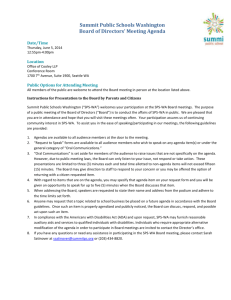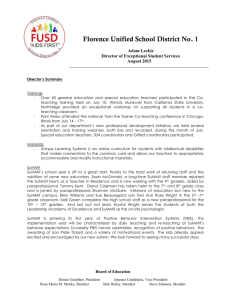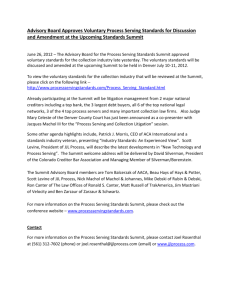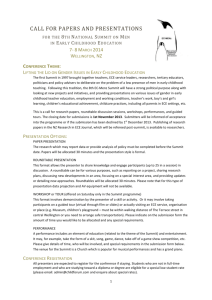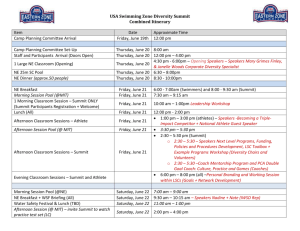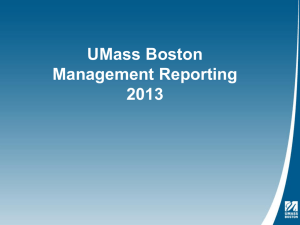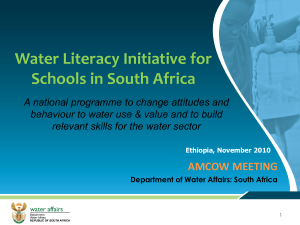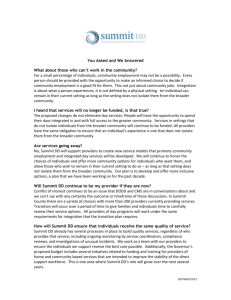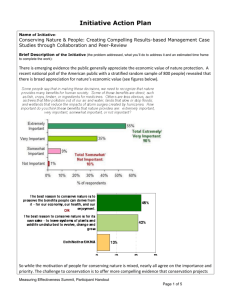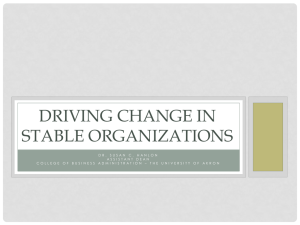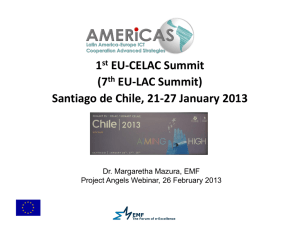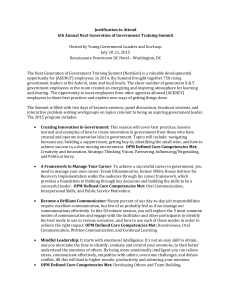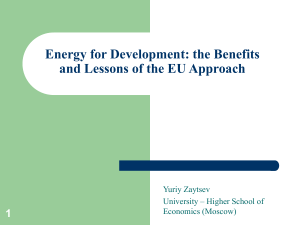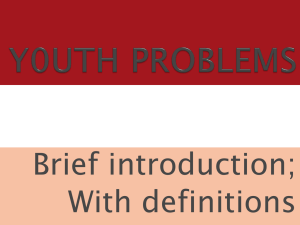David Harrison - Ohio Board of Regents
advertisement
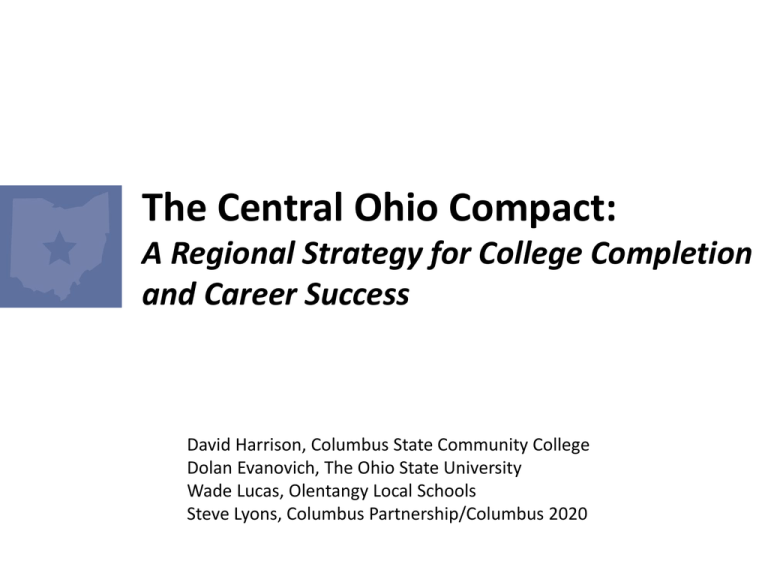
The Central Ohio Compact: A Regional Strategy for College Completion and Career Success David Harrison, Columbus State Community College Dolan Evanovich, The Ohio State University Wade Lucas, Olentangy Local Schools Steve Lyons, Columbus Partnership/Columbus 2020 Progress to Date • 2010. Discussions with college presidents and district superintendents. • May 2011. College Success Summit 1: Is there a case for a regional strategy? Summit 1 What kind of partnership could… • Ensure that all college-bound high school graduates are college ready? • Increase the number of high school graduates with credit toward a college degree? • Dramatically increase the number of students earning a college degree or certificate? • Reduce the costs of education for students, families, and taxpayers? Summit 1 A Regional Approach • Earlier assessment of college readiness, with programmatic steps to prevent remediation. • Start the college experience earlier, with an emphasis on making the senior year more productive for more students through dual enrollment and TAG courses. • Leverage all assets, including facilities, personnel, and technology, toward an integrated system. • Align with regional workforce and economic development efforts. • Strategic focus on curriculum alignment, outreach to students and families, and data sharing. Summit 1 Guiding Principles • Confront the hard facts. • Focus on acceleration, innovation, and integration. • Lead by example. Design solutions around the needs of students. • Start small, scale fast, measure relentlessly. • Don’t over-think it. Have a bias toward action. Progress to Date • 2010. Discussions with college presidents and district superintendents. • May 2011. College Success Summit 1: Is there a case for a regional strategy? • November 2011. College Success Summit 2: Strategic framework focused on curriculum alignment, access, and data. Delegation of teams to advance the work. Time is the Enemy • There is a new American majority on campus. Only 25% of today’s college students are “traditional.” • Part-time students rarely graduate. • Low-income students and students of color struggle the most to graduate. • Students take too many credits and too much time to graduate. • Remediation produces few students who ultimately graduate. Progress to Date • 2010. Discussions with college presidents and district superintendents. • May 2011. College Success Summit 1: Is there a case for a regional strategy? • November 2011. College Success Summit 2: Strategic framework focused on curriculum alignment, access, and data. Delegation of teams to advance the work. • April 2012. College Success Summit 3: Adoption of the Lumina Foundation’s 60% Goal and formation of strategy team. • Fall 2012. Completion of strategy document, adoption by governing boards, implementation of initial pilots. The Central Ohio Compact A Regional Strategy for College Completion and Career Success Achieving the 60% Goal • Dramatically increase the number of students earning a postsecondary credential. • Ensure that all college-bound high school graduates are college ready. • Increase the number of high school graduates with credit toward a post-secondary credential. • Increase the number of community college students earning bachelor’s degrees through guaranteed pathways to completion. • Provide consistent, accurate, and timely communication with students and families to eliminate uncertainty and ensure success at the college level. The Central Ohio Compact A Regional Strategy for College Completion and Career Success Achieving the 60% Goal • Employ specific strategies for working adults, low-income and first generation students, and students of color. • Advance the region’s need for a highly skilled workforce, including an emphasis on STEM fields, by aligning with regional workforce and economic development efforts. • Manage the costs of education for students, families, and taxpayers through 2+2 and 3+1 bachelor’s degree programs, shared facilities and services, and integrated planning. The Central Ohio Compact A Regional Strategy for College Completion and Career Success Achieving the 60% Goal Next Steps • Adoption by K-12, college and university governing boards. • Implementation at the transition points: – Integration of developmental education and dual enrollment opportunities in high schools – Targeted communication with guidance counselors, students, and families – Curricular planning, advising, and outreach to accelerate community college transfer students – Alignment of technical credentials with workforce needs • Annual summit each spring to report results and impact, share what was learned, and plan the next cycle. Dolan Evanovich Vice President of Strategic Enrollment Planning The Ohio State University Wade Lucas, Ed.D. Superintendent Olentangy Local School District Steve Lyons Vice President of Member Services and Community Engagement Columbus Partnership
